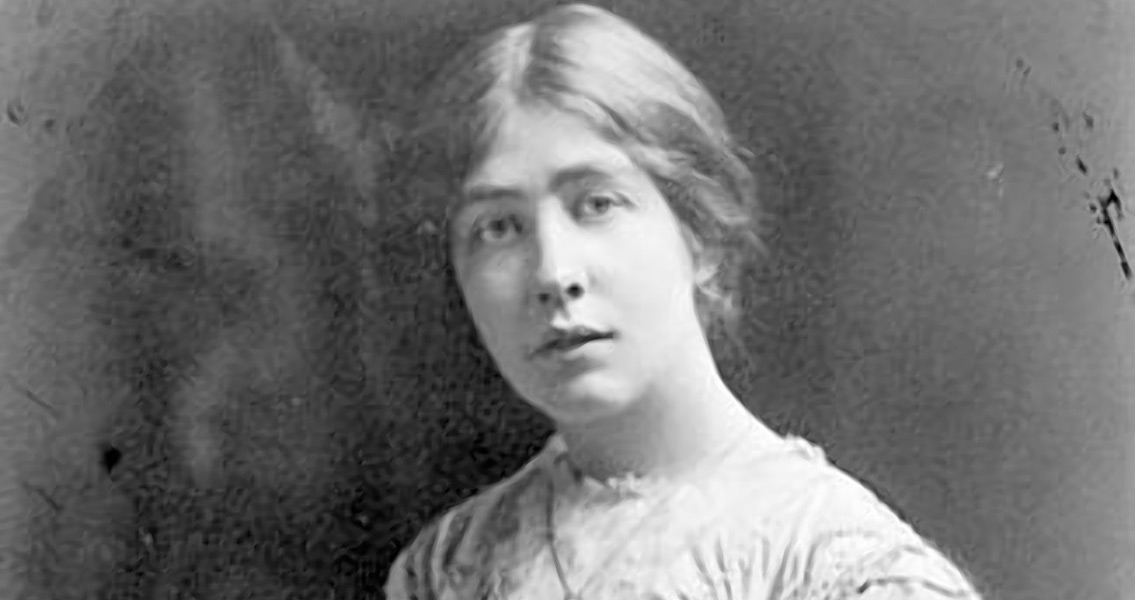<![CDATA[Sylvia Pankhurst died on 27th September, 1960. The British suffragette and international socialist came from a family of renowned campaigners for women's rights, yet unlike her mother: Emmeline Pankhurst, and sister: Christabel Pankhurst, no statue of Sylvia can be found outside the Houses of Parliament. The Pankhurst's were a controversial family in their time, challenging establishment views which denied women the vote. While Emmeline and Christabel have since been celebrated, it seems Sylvia is still considered too radical. A split in political views which also divided the family. Sylvia, born in Manchester in 1882, was one of five children of Dr. Richard and Emmeline Pankhurst. Her father was a committed socialist and advocate of women's suffrage, among other things helping draft an amendment to the Municipal Franchise Act of 1869, which granted unmarried female houseowners the right to vote in local elections. He was also instrumental in the Women's Property Bill which passed through Parliament in 1870. When the family moved to London in 1886, their Russell Square home became a hub for the city's socialists and suffragists. Richard and Emmeline continued their passionate campaigning for women's rights and social reform, undoubtedly influencing their children. In 1903, Emmeline, along with Sylvia and Christabel, founded the Women's Social and Political Union (WPSU), a political organisation dedicated to achieving gender equality with a particular determination to win female enfranchisement. Alongside her commitment to the WSPU, Sylvia remained deeply involved in the Labour movement, an interest which set her aside from her mother and older sister. Tension started to build up, Sylvia convinced the WSPU was pandering itself too much towards the middle class and neglecting the poorest in society. In 1913, she left the WPSU and with her long time friend Kier Hardie set up a new organisation: the East London Federation of Suffragettes (ELFS). With the outbreak of the First World War in 1914, the differences between Sylvia, and her mother and sister, became increasingly acute. The ELFS was the only suffragette organisation that refused to support the war. Sylvia also wanted the campaign for women's votes to continue through the conflict, but her family suspended theirs. From its base in the poverty stricken East End of London, the ELFS increasingly became a beacon for working class men, as well as women, even persuading several labour organisations to adopt its anti-war stance. In 1916, the ELFS changed its name to Worker's Suffrage Movement, campaigning to extend the franchise not just to women but also the male labourers who were still excluded from the electoral system. Pankhurst corresponded with Vladimir Lenin in the fledgling Soviet Union, and in 1920 helped found the Communist Party of Great Britain (although she was expelled a year later). For the next few years she toured left wing meetings in Europe, even visiting Lenin himself. Throughout, she publicly spoke about the ideas she disagreed with Lenin on, particularly issues of censorship. Some historians argue that the final break in Sylvia's relationship with her mother came in 1927, when she gave birth to her first child. Sylvia refused to marry the father, a fact which apparently so enraged Emmeline she would never speak to her daughter again. Sylvia meanwhile, continued her life of vociferous campaigning. In the 1930s, her attention was drawn to Ethiopia where she became a firm supporters of Emperor Haile Selassie I. Following the Italian invasion of the country, she set up a paper called the 'New Times and Ethiopian News', dedicated to drawing the British public's attention to atrocities being carried out in Ethiopia by the Italian armed forces in their attempts to colonise the country. Her work drew the attention of the British Secret Service, MI5, who continued monitoring her until 1948. The fight for women's rights had been won years earlier, but Pankhurst continued to find causes to dedicate her life to fighting for, and continued to attract the attention of the authorities. Sylvia eventually passed away in Ethiopia, her work for the county valued so highly the emperor ordered her a state funeral. In Britain, such recognition has never been granted. In March of this year a campaign was launched to have a statue of her erected in Islington, London, but the chances of her ever having a statue at Parliament seem slim. The radicalism that ultimately caused a rift between Sylvia Pankhurst and her family, has also seen her work overlooked when compared to her mother and sister. ]]>
Sylvia: The Pankhurst Who Was Too Radical?
